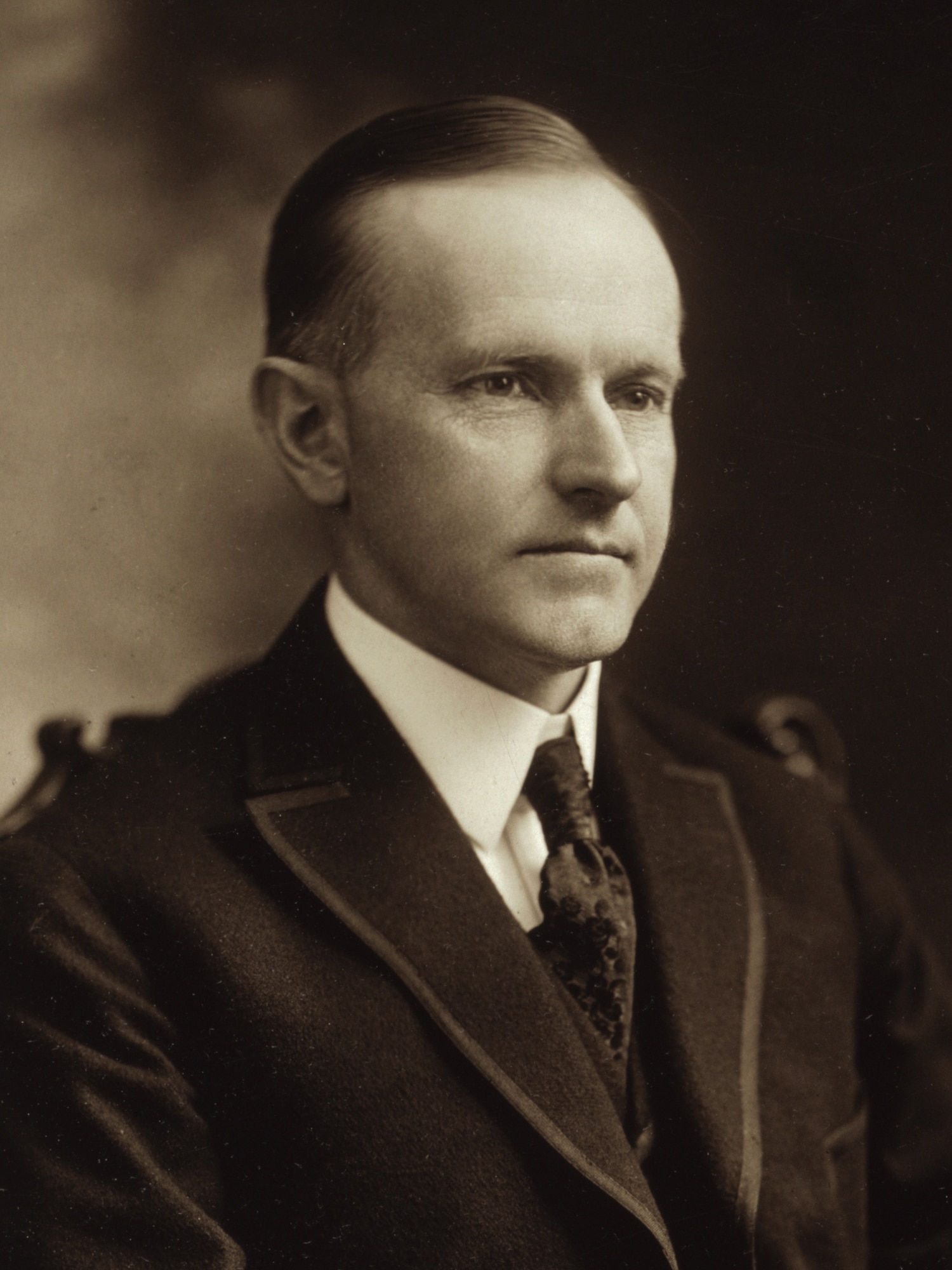President Calvin Coolidge became president after the death of Warren Harding. He would usher in a time of much wealth and innovation. This time would be called the "Roaring 20s," which would begin with much hope and end with the Great Depression.

Calvin Coolidge was given the nickname of "Silent Cal" due to his quiet demeanor. He would officially serve a single term, but due to Warren Harding's early death in office, it would seem as if he served two full terms. This was similar to what had happened when Theodore Roosevelt took office after William McKinley's assassination.
The 1920s would also usher in a time of high crime due to prohibition.
Jump to:
First Term
August 3, 1923: Calvin Coolidge is sworn in after the death of Warren Harding. He is the 30th President of the United States.
December 3, 1923: Coolidge delivers his State of the Union over the radio. This would be the first radio broadcast of the State of the Union by a President.
March 18, 1924: A $2 billion bill was passed by Congress to provide veterans of World War I with bonuses. Coolidge vetoes the bill. However, Congress would pass it again, thus overriding the veto.
May 3, 1924: The Pact of Anapala was signed by the leaders of the United States, El Salvador, Guatemala, and Nicaragua. The pact stated that they would not aid the rebels of Honduras.
May 11, 1924: Frank T. Jones is nominated by the Socialist Labor Party for President.
May 26, 1924: The Immigration Act of 1924 is passed. It tightens immigration within the United States.
June 10, 1924: The Republican Party nominates Coolidge to run for President.
June 24, 1924: The Democratic Party nominates John W. Davis for President.
August 30, 1924: The Dawes Plan is enacted, which provides a more flexible schedule for German reparations to the Allies. It also removes French and Belgian troops from the Ruhr River valley.
November 4, 1924: President Calvin Coolidge wins the election and is elected to his first full term.
Second Term
August 8, 1925: A Ku Klux Klan March in Washington, D.C., draws approximately 40,000 members to protect against rights for racial and religious minorities.
February 26, 1926: The size of the Federal Government and income tax is decreased with the signing of the Revenue Act.
May 10, 1926: The United States Marines occupy Nicaragua and remain there until 1933.
May 20, 1926: The Air Commerce Act is passed to require Pilots to be licensed.
October 25, 1925: The Supreme Court overturns the Tenure Office Act that was passed by Congress in 1867 that blocked the President from firing cabinet members without their approval.
February 23, 1927: Congress begins to regulate the radio industry when they pass the Federal Radio Commission.
August 2, 1927: Coolidge announces that he will not run for another term. Herbert Hoover would become the Republican nominee.
January 16, 1928: South American countries condemn the Roosevelt Corollary at the International Conference of American States in Havana, Cuba. To allay concerns, the United States provides a more detailed definition of the Monrow Doctrine, which states that the United States would not interfere with inter-American relations but that the doctrine was aimed at nations outside North and South America.
June 29, 1928: Democrats nominate Alfred E. Smith, the first Roman Catholic to run for President.
August 27, 1928: The United States and 15 other nations sign the Kellogg-Briand Pact that outlaws war as a legitimate means of settling disputes. There was no enforcement power within it. Therefore, the pact was pointless and just a gesture.
November 6, 1928: Herbert Hoover becomes the 31st President of the United States.
